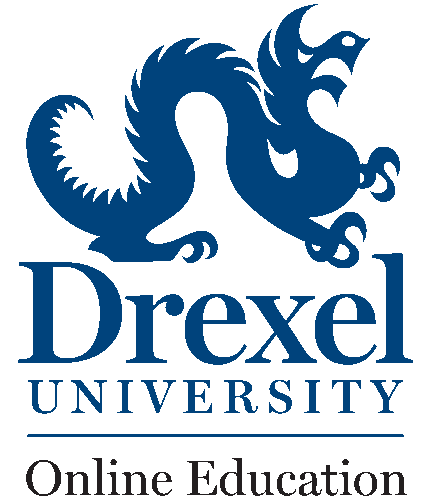


Requirements
and Restrictions
Learning Work?
or Live Event

Master of Science in Nursing Family Nurse Practitioner (MSN FNP)
Classes Begin: March 30, 20263 years
Online - Residency Req.
56
CCNE-accredited, 100% board pass rates
Family Nurse Practitioner / Individual Across the Lifespan
If you want to take the next step along your professional nursing journey into advanced practice nursing, Drexel University’s online Master of Science in Nursing (MSN) Family Nurse Practitioner (Individual Across the Lifespan) program is designed with your needs in mind. Drexel University’s College of Nursing and Health Professions delivers a carefully crafted FNP curriculum that covers both family and individual primary care across the lifespan from, birth to death. As such, it focuses on wellness care, acute and chronic illnesses management, and clinical strategies/interventions in health promotion, health maintenance, disease prevention and contemporary healthcare issues seen in family medicine. And upon graduation, you will become immediately eligible to sit for your Family Nurse Practitioner Certification Exam through AANP or ANCC.
Online MSN FNP Program Features
- Ranked #5 in Best Online Family Nurse Practitioner Master's Programs by U.S. News & World Report
- Ranked #12 in Best Online Graduate Nursing Programs for Veterans by U.S. News & World Report
- The MSN Family Nurse Practitioner (Individual Across the Lifespan) program at Drexel University is accredited by the Commission on Collegiate Nursing Education
- Upon completion of the FNP program, you will become eligible to sit for the Family Nurse Practitioner Certification Exam through AANP or ANCC
- Drexel alumni boast a 100 percent board pass rate on these FNP certification exams
- Synchronous online lectures offer a highly interactive learning format that challenges and engages
- The MSN FNP program is taught by industry-experienced and board-certified faculty from Drexel’s acclaimed College of Nursing and Health Professions
On-Campus Requirements
This high-quality program demands a major commitment of time, including multiple on-campus visits that are essential for transition into the NP role. During your time in the program, you will participate in mandatory on-campus and/or virtual intensives. The required intensives will be held during clinical courses. Students will attend an in-person on-campus intensive in NURS 534 for 4 days during week one of the summer quarter. Dates are subject to change.
Pennsylvania RN licensure is required prior to the start of your clinical components. While this is not a requirement for admission, we recommend starting the process immediately after admission.
Clinicals
The nurse practitioner programs in the Department of Advanced Practice Nursing at Drexel University provide you the flexibility of finding and coordinating your own clinical site and preceptor. The department also offers resources to assist you in this process. Accessibility to clinical sites and preceptors varies from state to state, and you may be required to travel to access clinical sites/preceptors and achieve the necessary clinical hours.
What is Advanced Practice Nursing?
An Advanced Practice Registered Nurse (APRN) can practice as one of the following four roles: certified registered nurse anesthetist (CRNA), certified nurse-midwife (CNM), clinical nurse specialist (CNS), and certified nurse practitioner (CNP). Many students who wish to become certified nurse practitioners choose to become a Family Nurse Practitioner because the FNP option allows for practical clinical experience with patients of all ages. Whether the FNPs plan to remain in the position to treat individuals across the lifespan or ultimately aim to specialize in one area, the FNP role is attractive to many nurses due to the vast career flexibility and possibilities.
What is a Family Nurse Practitioner (FNP)?
Family Nurse Practitioners (FNPs) work with patients at every stage of their lives. As an advanced practice registered nurse, FNPs can now practice autonomously in approximately 25 states. Typically, FNPs focus on being the primary healthcare provider and have the option of managing their own private practice.
As a certified Family Nurse Practitioner (FNP), responsibilities include:
- Diagnosing illnesses
- Treating patients across the lifespan
- Analyzing and developing clinical strategies and interventions for health promotion, health maintenance and disease prevention
- Managing episodic, acute or chronic illnesses
Drexel’s online Master of Science in Nursing: Family Nurse Practitioner (Individual Across the Lifespan) prepares future FNPs for successful careers featuring a curriculum rich in the following areas:
- Contemporary Healthcare
- Decision-Making
- Quality and Safety
- Healthcare Ethics
- Health Assessment & Diagnostic Reasoning
- Advanced Pathophysiology and Pharmacology
- Primary care of patients across the lifespan
How Do You Become a Family Nurse Practitioner (FNP)?
Family Nurse Practitioners represent about 50% of all certified nurse practitioners in the United States. The reason the FNP specialty is so popular is because it offers a wide range of opportunities to treat patients from birth to end-of-life. To become an FNP and to benefit from the future career potential that comes along with it, nurses must follow an established process.
- Step 1 – Get a Bachelor of Science in Nursing (BSN). While there are many paths to becoming a BSN, such as starting with your ADN and then completing your BSN after you earn your RN licensure, future FNPs will need to earn their BSN before entering an FNP program.
- Step 2 – Pass the National Council Licensure Examination (NCLEX-RN) and become a licensed RN.
- Step 3 – Enroll in a regionally-accredited Master of Science in Nursing: Family Nurse Practitioner (Individual Across the Lifespan) program and graduate to become immediately eligible to take the Family Nurse Practitioner Certification exam through AANP or ANCC.
- Step 4 – Pass the Family Nurse Practitioner Certification Exam through AANP or ANCC. Drexel University MSN: Family Nurse Practitioner graduates have a 100 percent board pass rate!
Where Can a Family Nurse Practitioner (FNP) Work?
With an aging US population and a growing shortage of primary care clinicians, among other factors, the demand for qualified nurse practitioners continues to boom. According to the Bureau of Labor Statistics, the job outlook for Advanced Practice Nurses is expected to grow 35% by 2034. This is much higher than the national average.
Earning an MSN FNP and passing the board certification exams officially entitles practitioners to hold the title of Certified Family Nurse Practitioner (CFNP). Completing these steps will open many career opportunities to practitioners in potential workplaces such as:
- Physician’s Offices
- Primary Care Clinics
- Outpatient Clinics
- Long-Term Care Facilities
- Hospice Facilities
- Family Practice and Internal Medicine Clinics
- Private Practice
- Correctional Institutions
- And many more
How Much Does a Family Nurse Practitioner (FNP) Make?
Graduates from Drexel’s online MSN FNP program must pass the Family Nurse Practitioner Certification Exam through AANP or ANCC to become practicing nurse practitioners. Upon earning their certification, FNPs command competitive salaries, commensurate with their level of experience, location and other factors.
According the Bureau of Labor Statistics’ May 2024 report, the average annual wage for nurse practitioners was $132,050, with the top 10 percent in the FNP profession potentially earning more than $217,720 annually. Nurse practitioners, especially those working in general medical and surgical hospitals and outpatient care centers, tend to earn a higher mean salary of $137,790 (General Medical and Surgical Hospitals) and $137,640 (Outpatient Care Centers). Nurse practitioners working in the Personal Care Services industry typically see a mean hourly wage of $67.05. The state that NPs work in is also a factor in calculating salary expectations. For instance, California NPs can look forward to a mean hourly rate of $60.95, whereas Ohio NPs, should expect rates that are closer to $48.90.
Online Open Houses
Learn more about this and other nursing programs from our previously recorded online open house webinar series.
Questions? We're here to help!
For application related questions:
enroll@drexel.edu
For program related questions:
College of Nursing and Health Professions Program Team
CNHPGraduateDivision@drexel.edu
Online Nurse Practitioner programs are offered only on a part-time basis.
Drexel University offers a variety of Graduate Minors that can be added to any master's degree program.
State restrictions may apply to some programs.
The MSN Family Nurse Practitioner (Individual Across the Lifespan) program at Drexel University is accredited by the Commission on Collegiate Nursing Education.
Curriculum
This program is organized into four 10-week quarters per year (as opposed to the traditional two semester system) which means you can take more courses in a shorter time period. One semester credit is equivalent to 1.5 quarter credits.
| Core Courses | ||
| NURS 500 | Confronting Issues in Contemporary Health Care Environments | 3.0 |
| NURS 502 | Advanced Ethical Decision Making in Health Care | 3.0 |
| NURS 544 | Quality and Safety in Healthcare | 3.0 |
| RSCH 503 | Research Methods and Biostatistics | 3.0 |
| RSCH 504 | Evaluation and Translation of Health Research | 3.0 |
| Support Courses | ||
| NUPR 520 | Nurse Practitioner Clinical Orientation Seminar | 0.0 |
| NURS 548 | Advanced Pathophysiology | 3.0 |
| NURS 549 | Advanced Pharmacology | 3.0 |
| NURS 550 | Advanced Clinical Assessment & Diagnostic Reasoning | 4.0 |
| NURS 556 | Pharmacology for Family Nurse Practitioners | 3.0 |
| NURS 664 | Professional Issues for Nurse Practitioners | 1.0 |
| Clinical Courses | ||
| NURS 534 | FNP I: Primary Care of the Emerging Family | 5.0 |
| NURS 535 | FNP II: Primary and Episodic Care of Infants, Children, and Adolescents | 5.0 |
| NURS 536 | FNP III: Primary Care of Adults and Older Adults Across the Adult Age Spectrum I | 5.0 |
| NURS 537 | FNP IV: Primary Care of Adults and Older Adults Across the Adult Age Spectrum II | 5.0 |
| NURS 538 | FNP V: Integrative Practicum in Family Practice Across the Lifespan | 4.0 |
| Elective* | 3.0 | |
| Total Credits | 56.0 | |
* Nursing Electives can be any course with the prefix Nursing (NURS, NUPR), Interprofessional Studies (IPS), or Complementary and Integrative Health (CIT), with course number ranging from 500-699. Other graduate courses outside of these designations will need to be approved by the department chairperson.
Admissions Criteria
- Bachelor of Science in Nursing
- BSN degrees must be from an institution accredited by CCNE (Commission on Collegiate Nursing Education), ACEN (Accreditation Commission for Education in Nursing), or NLN CNEA (NLN Commission for Nursing Education Accreditation)
- Cumulative GPA of 3.0 or above from your BSN
- 1-2 years of medical/surgical nursing experience preferred
- A current, unrestricted United States RN license
Required Documents
With multiple ways to submit documents, Drexel makes it easy to complete your application. Learn more by visiting our Completing Your Application Guide.
- A completed application
- Official transcripts from all universities or colleges and other post-secondary educational institutions (including trade schools) attended
- Two professional letters of recommendation from either previous or immediate supervisors or former nursing faculty members who can attest to your clinical knowledge, skill and potential aptitude for graduate study
- References will not be accepted from colleagues or family members
- Personal statement (under 1,000 words) that will give the admissions committee a better understanding of:
- Why you are choosing this particular program of study,
- Your plans upon completion of the graduate degree, and
- How your current work experience will enhance your experience in this MSN program
- Resume including specific details of your responsibilities and job experiences
- A copy of your United States RN license (License verification from your nursing license registry website is acceptable)
- Additional requirements for International Students
Tuition
The tuition rate for the academic year 2025-2026 is $1169 per credit. (A 10% tuition savings off Drexel's regular tuition rate of $1298 per credit)
For the academic year 2025-2026, students enrolled in an online graduate academic program will be charged a graduate online program fee of $125 per year.
- This program is eligible for Financial Aid.
- Special tuition rates available for Drexel University Alumni, Military members, and members of our Partner Organizations.
- These rates apply only to new online students and students being readmitted.
- These rates apply only to fully online courses. Hybrid or on-campus courses may have different rates.
- Tuition rates are subject to increase with the start of each academic year in the fall term.
- All students must contact applyDUonline@drexel.edu within the first two weeks of the term to request tuition savings for which they qualify.
- Special rates cannot be combined. If you qualify for more than one special rate, you'll be given the one with the largest savings.
- When receiving special tuition plans, you may not be able to combine them with other tuition benefits that may be available from Drexel University.
Academic Calendar
2025-2026 Academic Year
Term
Classes Begin
Classes End
Exams Begin
Exams End
Fall 2025
September 22, 2025
December 6, 2025
December 8, 2025
December 13, 2025
Winter 2026
January 5, 2026
March 14, 2026
March 16, 2026
March 21, 2026
Spring 2026
March 30, 2026
June 6, 2026
June 8, 2026
June 13, 2026
Summer 2026
June 22, 2026
August 29, 2026
August 31, 2026
September 5, 2026


© All Rights Reserved

